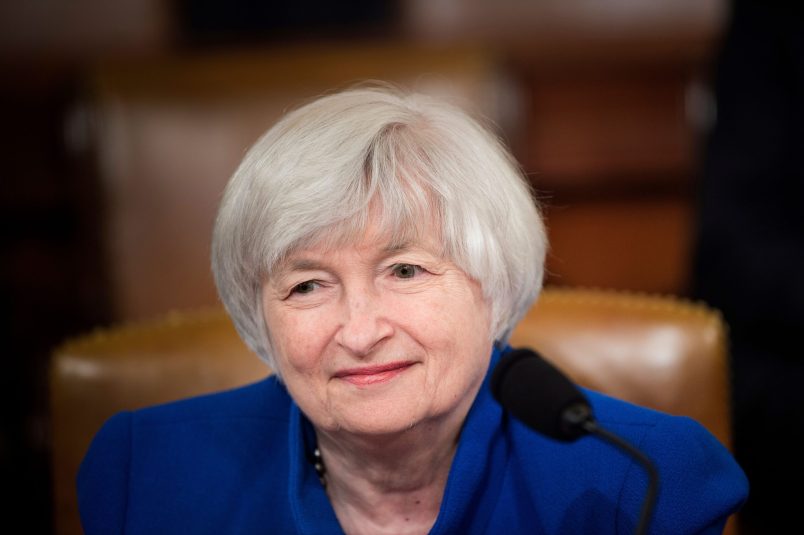Let me follow up a bit on this post from last night about Janet Yellen’s CNBC interview. I don’t read her as ruling out “consol bonds” or the 14th amendment or various other approaches. I see her communicating two things: one overarching and one immediate and specific.
Let’s deal with the first of those first.
As we’ve hurtled closer to the cliff, there’s been a rising chorus among those who are fiercely opposed to any negotiation with parliamentary terrorists. That chorus is anxiously asking this question: what is your plan when they call your bluff? What steps are you planning once they start shooting the hostages?
It’s been very hard to get a sense of just what that plan is and most of that is by design. They need to keep their cards close to their vests. But I’ve seen people asking each other: They’re not just assuming House Republicans are going to blink, are they? That some phantom Republican grownups are going to appear at the last moment?
At this point it’s crystal clear the House Republicans are going to start shooting hostages. Indeed, it won’t even be a matter of desperation. A lot of them want to start shooting.
What I read Yellen saying here is, yes, we know they’re ready to do that, and that that is probably going to happen; and yes we have a plan for what we’ll do in response.
In the video — the text and video of which you can see in this post — she says again and again that there are only “bad options.” But what seems more salient is that she’s saying they have a number of options. We know they’re not great. That’s a given. But they have options and they’re willing to take them. That’s the significant shift.
Her second point is the more specific one: that the first option is prioritizing some spending over others. So not sending out some checks. Since 2011 there’s been a conversation about just how much the Treasury has the ability to do this. But presumably they feel they’re able to at some level. That probably looks something like a government shutdown on steroids. Who knows?
So that’s the first option but I don’t think it’s the only one. They’re saying they know where this is going and they’ve got a plan or at least a series of options for what happens on the day after.






